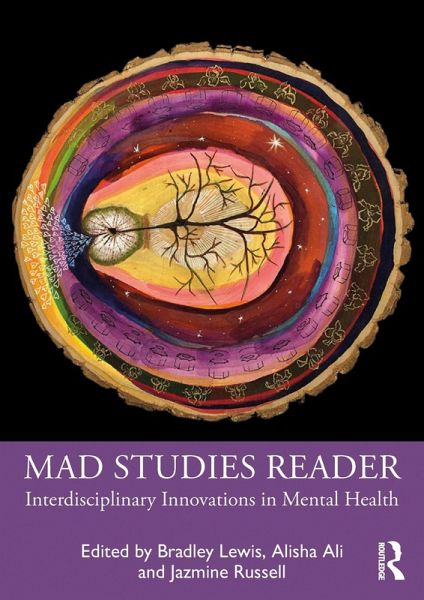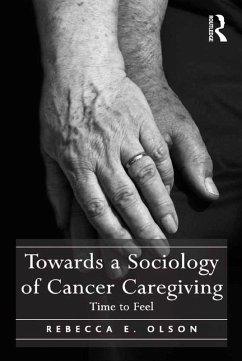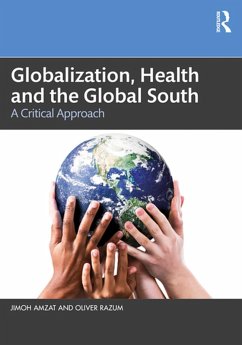
Mad Studies Reader (eBook, PDF)
Interdisciplinary Innovations in Mental Health
Redaktion: Lewis, Bradley; Russell, Jazmine; Ali, Alisha
Versandkostenfrei!
Sofort per Download lieferbar
64,95 €
inkl. MwSt.
Weitere Ausgaben:

PAYBACK Punkte
32 °P sammeln!
The last few years have brought increased writings from activists, artists, scholars, and concerned clinicians that cast a critical and constructive eye on psychiatry, mental health care, and the cultural relations of mental difference. With particular focus on accounts of lived experience and readings that cover issues of epistemic and social injustice in mental health discourse, the Mad Studies Reader brings together voices that advance anti-sanist approaches to scholarship, practice, art, and activism in this realm.Beyond offering a theoretical and historical overview of mad studies, this R...
The last few years have brought increased writings from activists, artists, scholars, and concerned clinicians that cast a critical and constructive eye on psychiatry, mental health care, and the cultural relations of mental difference. With particular focus on accounts of lived experience and readings that cover issues of epistemic and social injustice in mental health discourse, the Mad Studies Reader brings together voices that advance anti-sanist approaches to scholarship, practice, art, and activism in this realm.
Beyond offering a theoretical and historical overview of mad studies, this Reader draws on the perspectives, voices, and experiences of artists, mad pride activists, humanities and social science scholars, and critical clinicians to explore the complexity of mental life and mental difference. Voices from these groups confront and challenge standard approaches to mental difference. They advance new structures of meaning and practice that are inclusive of those who have been systematically subjugated and promote anti-sanist approaches to counter inequalities, prejudices, and discrimination. Confronting modes of psychological oppression and the power of a few to interpret and define difference for so many, the Mad Studies Reader asks the critical question of how these approaches may be reconsidered, resisted, and reclaimed.
This collection will be of interest to mental health clinicians; students and scholars of the arts, humanities and social sciences; and anyone who has been affected by mental difference, directly or indirectly, who is curious to explore new perspectives.
Beyond offering a theoretical and historical overview of mad studies, this Reader draws on the perspectives, voices, and experiences of artists, mad pride activists, humanities and social science scholars, and critical clinicians to explore the complexity of mental life and mental difference. Voices from these groups confront and challenge standard approaches to mental difference. They advance new structures of meaning and practice that are inclusive of those who have been systematically subjugated and promote anti-sanist approaches to counter inequalities, prejudices, and discrimination. Confronting modes of psychological oppression and the power of a few to interpret and define difference for so many, the Mad Studies Reader asks the critical question of how these approaches may be reconsidered, resisted, and reclaimed.
This collection will be of interest to mental health clinicians; students and scholars of the arts, humanities and social sciences; and anyone who has been affected by mental difference, directly or indirectly, who is curious to explore new perspectives.
Dieser Download kann aus rechtlichen Gründen nur mit Rechnungsadresse in A, B, BG, CY, CZ, D, DK, EW, E, FIN, F, GR, HR, H, IRL, I, LT, L, LR, M, NL, PL, P, R, S, SLO, SK ausgeliefert werden.













